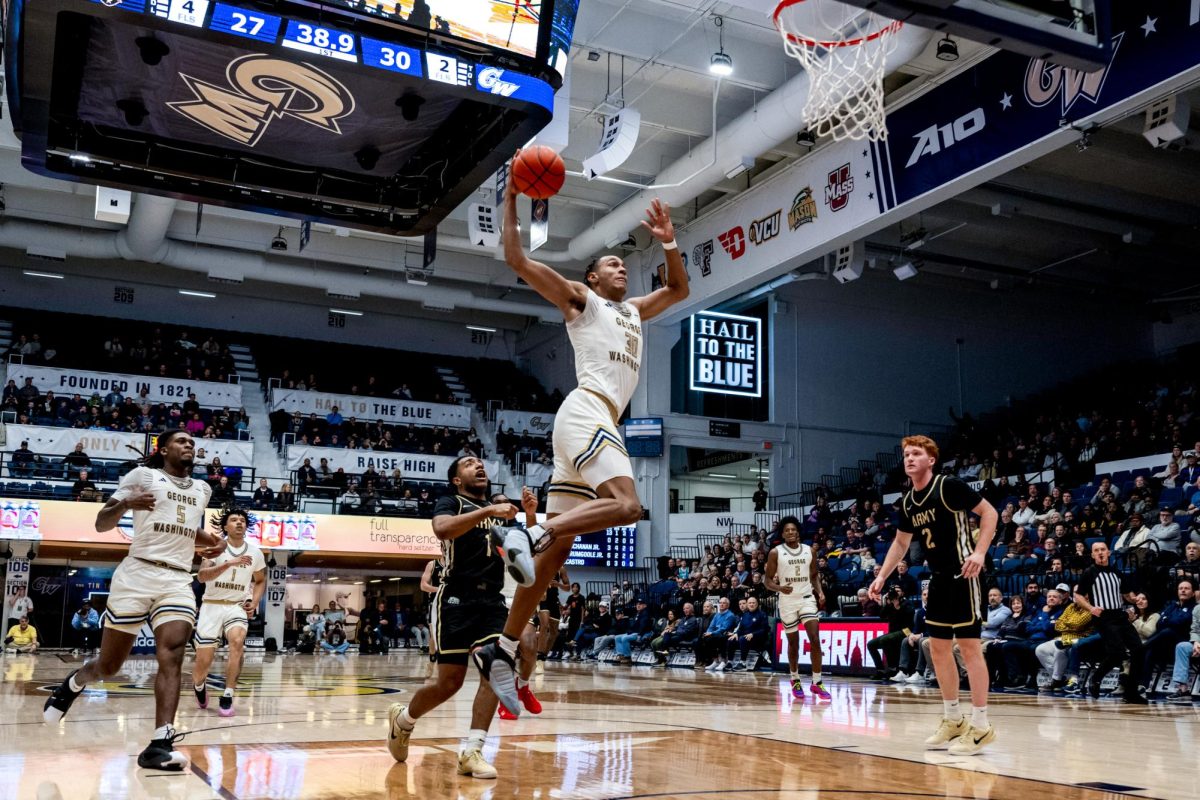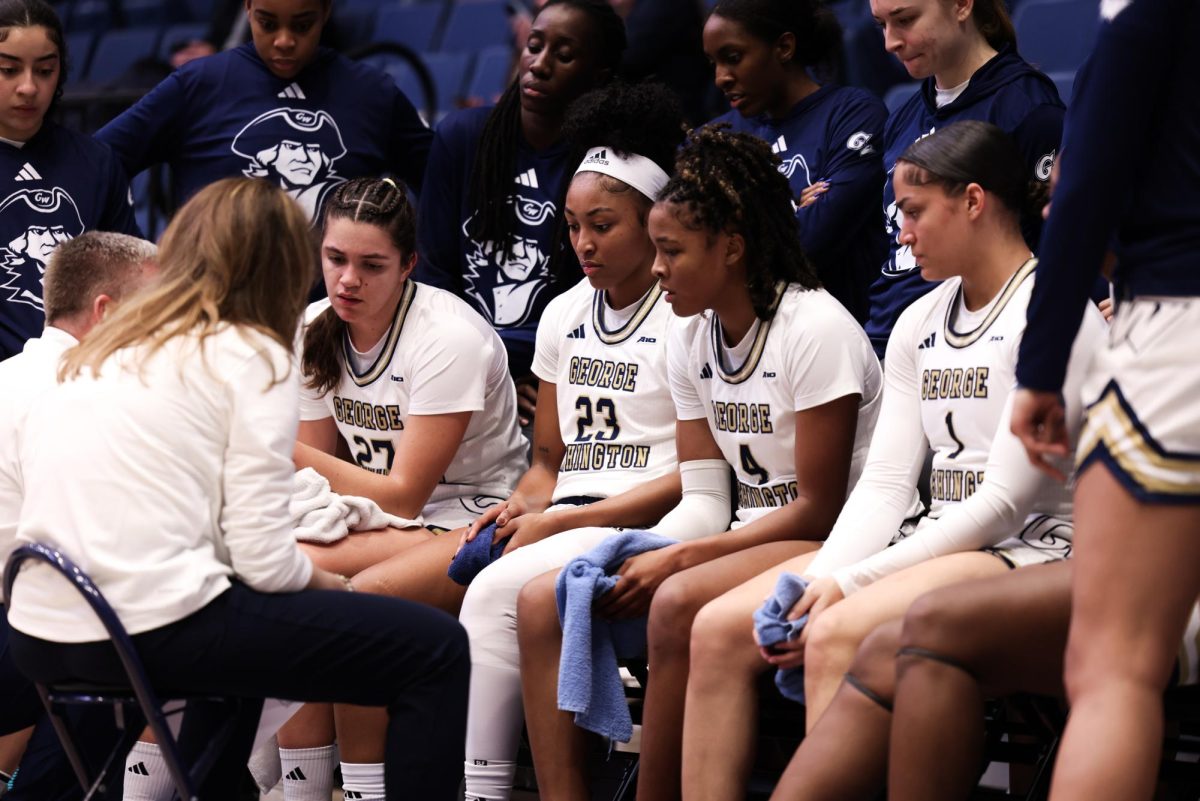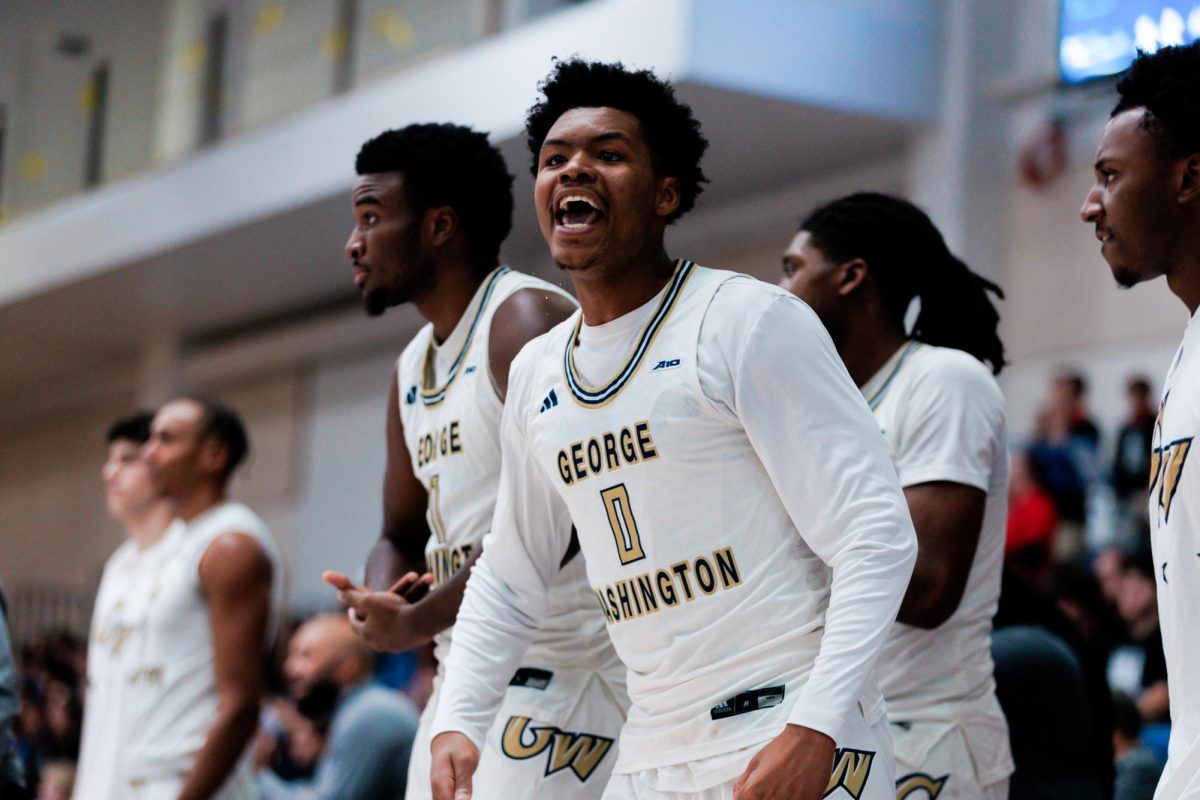There is an old adage that soccer is a gentleman’s game played by hooligans and rugby is a hooligan’s game played by gentlemen. GW’s gang of gentlemen, the Colonials rugby team, is in the midst of its best season in more than a decade.
A large part of the team’s success can be attributed to a recent surge in rugby’s popularity in the United States, especially in the Washington area, club president Justin Slotnick said. Arguably the second most-popular sport in the world behind soccer, rugby has been a major player in the European sports scene since its origin in the 1800s, but the physical game is starting to appeal to Americans.
“(Playing) is definitely the best decision I’ve made with my life so far,” said junior Nate Mann, the club’s vice president and captain.
Rugby, which started at a school with the same name in England, is popular outside the United States. It is a hybrid, of sorts, between football and soccer. In the professional realm, it’s a violent game that often results in injury.
Founded in 1967 after the termination of GW’s football program, this year’s rugby team is 7-4, the program’s best record in 11 years. Although safety concerns prevent rugby from being an NCAA-sanctioned sport, the Colonials are recognized by USA Rugby, the largest rugby organization in the country.
Mann attributed the team’s success to the large turnout this season.
“When the team does better, more people want to get involved,” he said. “I’m hoping that in the next five years, even when we’re all gone, that it’s going to be a snowball effect and the team will just continue to grow and get better.”
The success thus far is astounding. The Colonials came in second place at the Rocky Gorge Cup April 14 in Laurel, Md., winning three games before losing to Navy in the final. A week earlier, the club competed in the invite-only Cherry Blossom’s Tournament at Rosecroft Raceway in Ft. Washington, Md., a two-day event that is considered one of the most prestigious rugby tournaments in the country. GW went 2-1 in the group stage before losing to Rice by seven points in the semifinals of the Cup Division.
Slotnick said that the weekend was a huge success, considering the Colonials competed against top teams such as James Madison University, the College of William & Mary and Yale University.
During the regular season, the Colonials play in the Potomac Rugby Union and compete against the likes of Georgetown, Johns Hopkins and American. While the team aims to play its games at D.C.’s Wallenburg Field, Slotnick said it is difficult to find one location for GW to call home without any designated rugby fields in the District.
“There’s a lot of demand for those fields, and the city is definitely working to develop something for all of us, but we still have a little ways to go,” he said.
Although rugby is often seen as a vicious sport, Mann said there are fewer injuries in rugby than football, ironically because players do not wear pads.
“We don’t have that feeling of invincibility because we don’t have a helmet on, so we’re much more aware of what we’re doing with our body,” he said. “The feeling of flesh on flesh is a lot different than pad on pad. I’ve played (rugby) for three years now, and I don’t think it’s as physical as everyone wants to believe it is.”
Veterans teach newcomers how to play the sport, starting from the basics, Mann said. The 30- to 40-person squad is broken down into an “A” team and “B” team, which gives everyone an opportunity to play.
“It’s really interesting to teach a sport, but it works well and everybody gets involved,” Slotnick said. “Nobody feels like they’re going to be sitting on the bench for three years before they get to play in a game.”
Mann said that GW’s rugby team appeals to students who played sports in high school but were not gifted enough to compete at the Division I level to continue playing a team sport.
“I think there’s a large group of students that played sports in high school and may be looking to fill that void and the camaraderie that comes with playing on a team,” Mann said. “If you’re looking for that, this is it.”






